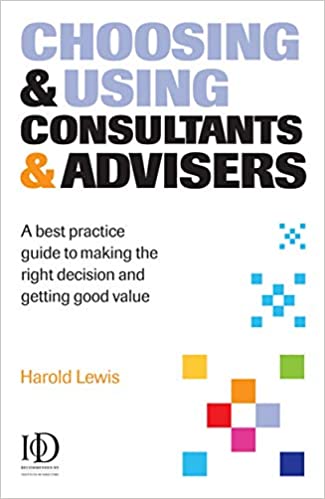“Choosing and Using Consultants & Advisers” provides practical advice for organizations and individuals seeking to engage the services of consultants and advisers. The book covers a range of topics including how to select the right consultant, how to negotiate fees, how to manage the consulting process, and how to evaluate the results.
The Benefits of Using Consultants
Using consultants can bring many benefits to organizations, such as specialized expertise, access to resources, and the ability to implement change without disrupting day-to-day operations.
Evaluating Results
At the end of a consulting engagement, it’s important to evaluate the results to ensure that the project was successful and that the consultant delivered value for money. This involves assessing the consultant’s performance, as well as the impact of the project on your organization.
Building Long-Term Relationships
Working with a consultant can be a valuable way to build long-term relationships with experts in your field. By establishing a good working relationship with a consultant, you can tap into their expertise and resources over time.
Continuous Improvement
Finally, it’s important to continuously improve your organization’s approach to working with consultants. This involves reflecting on past experiences, identifying areas for improvement, and implementing changes to ensure that you get the most out of your consulting engagements.
Managing the Consulting Process
Once you’ve engaged a consultant, it’s important to manage the consulting process effectively. This includes setting clear expectations, establishing regular communication, and monitoring the consultant’s progress.
Defining Your Needs
Before engaging a consultant, it’s important to clearly define your needs and objectives, as well as the scope of the project. This will help ensure that you select the right consultant for the job.
Maintaining Confidentiality
Consultants are often given access to sensitive information, so it’s important to establish confidentiality agreements and procedures to protect your organization’s data and intellectual property.
Avoiding Common Pitfalls
There are many common pitfalls that organizations can fall into when working with consultants, such as failing to establish clear objectives, over-reliance on the consultant, and inadequate project management. It’s important to be aware of these pitfalls and take steps to avoid them.
Selecting the Right Consultant
When selecting a consultant, it’s important to look for someone who has the right skills, experience, and qualifications for the job. You should also consider factors such as their reputation, availability, and compatibility with your organization.
Negotiating Fees
Fees for consulting services can vary widely, so it’s important to negotiate a fair price for the work that needs to be done. This involves understanding the consultant’s billing practices and negotiating a fee structure that aligns with your budget and expectations.


Member discussion: